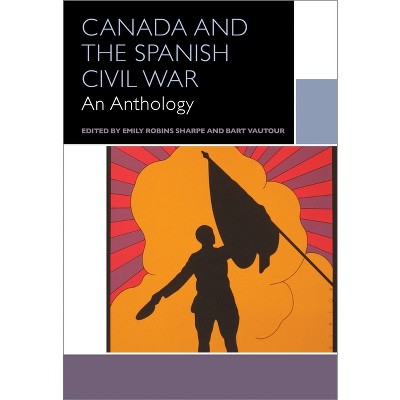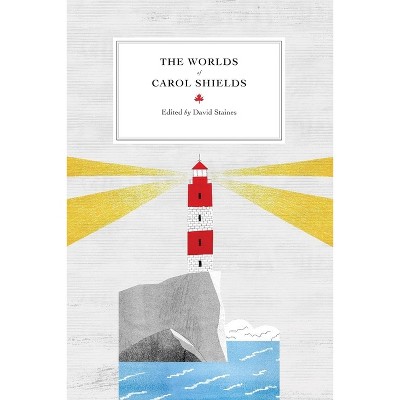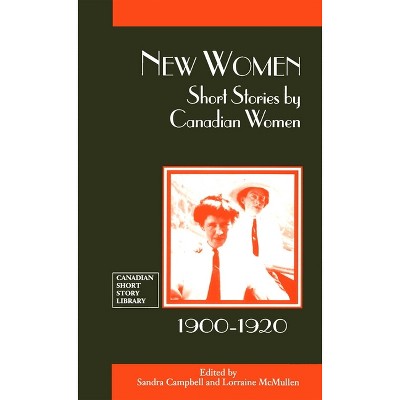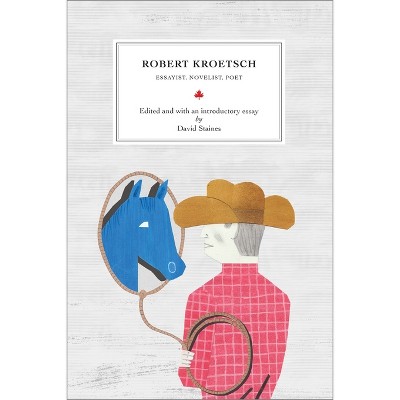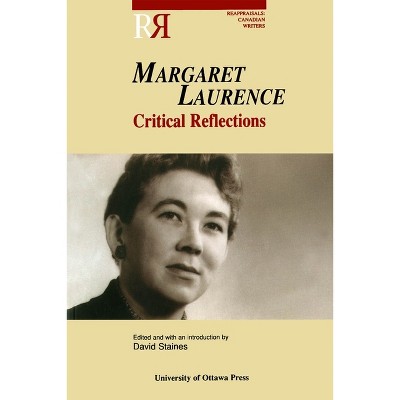Sponsored

Divided Highways - (Canadian Literature Collection) by Heather MacFarlane (Paperback)
In Stock
Sponsored
About this item
Highlights
- The road trip genre, well established in the literatures of Canada, is a natural outcome of the nation's obsession with geography.
- About the Author: Heather Macfarlane is Adjunct Professor at Queen's University and teaches Canadian and Indigenous Literatures.
- 178 Pages
- Literary Criticism, Canadian
- Series Name: Canadian Literature Collection
Description
About the Book
The road trip genre, well established in the literatures of Canada, is a natural outcome of the nation's obsession with geography. Divided Highways examines road trip works by Anglophone, Québécois and Indigenous authors and these communities' sense of place and nationhood.Book Synopsis
The road trip genre, well established in the literatures of Canada, is a natural outcome of the nation's obsession with geography. Divided Highways examines road trip works by Anglophone, Québécois and Indigenous authors and these communities' sense of place and nationhood. The road trip genre, well established in the literatures of Canada, is a natural outcome of the nation's obsession with geography. Divided Highways examines road narratives by Anglo-Canadian, Québécois and Indigenous authors and the sense of place and nationhood in these communities. Geography describes the land, and history peoples it, just as memories connect us to place. This is why road trips are such a feature of writing in Canada, allowing the travelers to claim, at least symbolically, the terrain they have traversed.
Macfarlane examines works by a variety of writers from each of these communities, including Gilles Archambault, Jeannette Armstrong, Jill Frayne, Tomson Highway, Claude Jasmin, Robert Kroetsch, Jacques Poulin, Aritha van Herk and Paul Villeneuve, to name but a few. Studying a diversity of road narratives from Anglo-Canadian, Québécois and Indigenous populations not only demonstrates the existence of a very specific road genre, but is also revelatory of very diverse and often conflicting perceptions of nationhood. It is these expressions of sovereignty that are integral to ongoing discussions of reconciliation and decolonization. Published in English.Review Quotes
One of the first major studies of the Canadian road narrative, Divided Highways is ambitious in scope; nevertheless, the analysis is comprehensive, omissions and brevities are clearly explained, and further research in this area is encouraged. Divided Highways is neatly structured. Framed by a comprehensive Introduction and an accessible Conclusion are three main chapters, each of which is split into three subsections focusing on close readings of Anglo-Canadian, Franco-Québécois, and Indigenous literature. The splitting of these chapters into subsections is reflective of the overall argument of the book: that there are 'multiple sovereignties at play in Canada and the differing goals of each ... demonstrate the necessity of nation-to-nation dialogue' (p. 143). Macfarlane advocates for a refreshing approach that moves away from Eurocentric theories of postcolonialism which are less effective, the author suggests, than comparative analysis of cultural and national specificities.
Macfarlane argues that the road narrative in Canada is a 'nation-building tool' (p. 8). The road narrative fosters the very nation-to-nation dialogue Macfarlane deems essential, crossing borders and boundaries without necessarily compromising the sovereignty of the peoplehoods on either side. Chapter 1, 'Home and Away', addresses the contradictory urges to settle and to wander, considering in particular the tendency in Canadian literature to wander in search of a place to settle, whether willingly (in search of something better over the horizon), or unwillingly (Indigenous displacement through force). Chapter 2, 'Sexual Conquest on the Road', considers sexual encounters between driver and passenger or a stranger on the road in terms of possession, the claiming of the body and, concurrently, the nation. Chapter 3, 'Travelling Companions', addresses the various modes of travel - solitary, in pairs, or in groups - and how each reflects the colonial position of the protagonist within Canada. This chapter is perhaps the weakest of the three. Much of the material seems more suited to 'Sexual Conquest on the Road', while the subsection on Anglo-Canadian literature and its 'intimate relationship with the land' (p. 128) suggests the need for an entirely separate chapter on the Canadian road narrative and national geography. Indeed, Macfarlane hints at the significance of space and place throughout Divided Highways, alluding to 'the nation's obsession with its geography' (p. 143) without discussing in detail how such an 'obsession' is mediated through the three different lenses of Anglo-Canadian, Franco-Québécois, and Indigenous literature.
Nevertheless, the concise nature of the book makes for an informative read that is never tedious. While studies of the road narrative have the potential for interdisciplinarity - indeed, analysis of the Canadian road movie would not have been amiss here - Macfarlane's focus on literary iterations is immensely rewarding and prevents Divided Highways from becoming a broadly summative work. As much as this book is about the Canadian road narrative, it is also about nation-to-nation dialogue as the first step towards reconciliation and decolonisation. In this respect, Divided Highways is an original and insightful book that will appeal not only to literary theorists, but also to those interested in national identity and politics in Canada.
About the Author
Heather Macfarlane is Adjunct Professor at Queen's University and teaches Canadian and Indigenous Literatures. Her publications include an anthology of critical works on Indigenous literatures and articles on literature produced in Canada in both English and French.Shipping details
Return details
Trending Poetry






